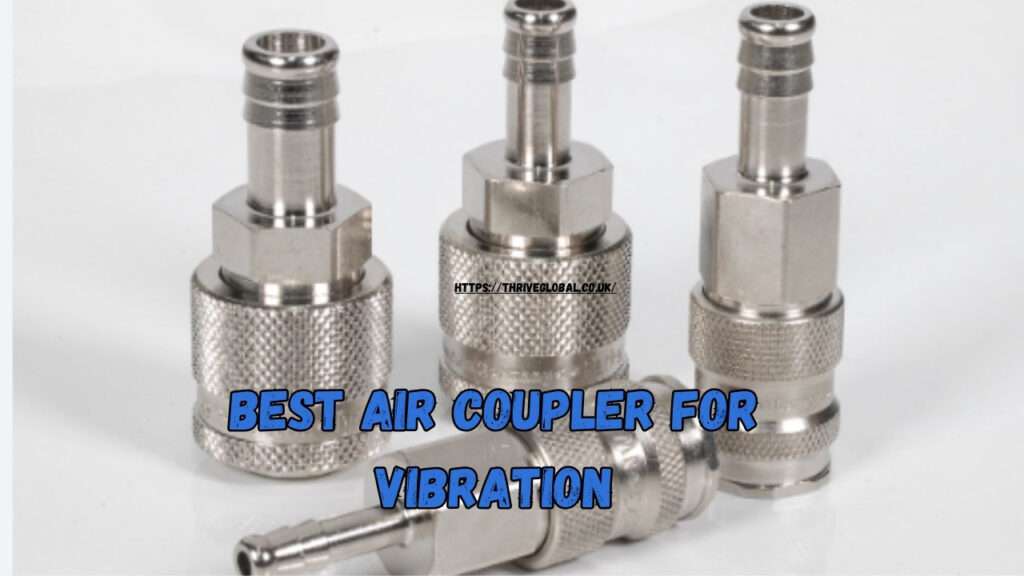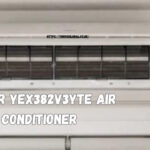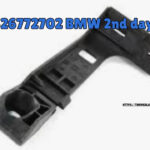Introduction to Best Air Coupler for Vibration
Finding the best air coupler for vibration is crucial for ensuring the efficiency and longevity of your equipment. These essential components connect pneumatic tools and hoses, facilitating seamless airflow and minimizing vibration impacts. In this guide, we explore the top options available, considering durability, performance, and user-friendliness.
Understanding the Importance of Air Couplers
Air couplers play a pivotal role in pneumatic systems, acting as connectors between hoses and tools. They ensure a secure and leak-free connection, vital for maintaining consistent airflow. Properly chosen air couplers can significantly reduce vibration, enhancing the tool’s precision and operator comfort.
Types of Air Couplers
The most common types include:
Quick-Disconnect Couplers Quick-disconnect couplers are popular for their ease of use. They allow for rapid connection and disconnection of hoses, making them ideal for applications requiring frequent tool changes.
Push-to-Connect Couplers Push-to-connect couplers are known for their simplicity. They require minimal force to connect, making them user-friendly and efficient in reducing vibration.
Twist-Lock Couplers Twist-lock couplers provide a secure connection by twisting and locking the hose in place. This type is preferred in high-vibration environments as it ensures a tight seal.
Materials and Build Quality
The material and build quality of an air coupler greatly affect its performance and durability. Common materials include:
Brass Brass couplers are highly durable and resistant to corrosion, making them suitable for various environments.
Stainless Steel Stainless steel couplers offer exceptional strength and corrosion resistance, ideal for heavy-duty applications.
Aluminum Aluminum couplers are lightweight yet durable, providing a good balance between portability and strength.
Top Air Couplers for Vibration Reduction
When it comes to vibration reduction, certain air couplers stand out due to their design and material composition. Here are some top picks:
Milton S-715 The Milton S-715 is renowned for its robust brass construction and quick-connect design. It effectively reduces vibration, providing a smooth and reliable connection.
Prevost High-Flow Safety Coupler This coupler features an ergonomic design and high-flow capacity, ensuring minimal vibration and maximum efficiency.
Teflon-Coated Quick-Connect Couplers Teflon-coated couplers are excellent for high-vibration environments. The coating reduces friction, leading to smoother connections and less vibration.
Factors to Consider When Choosing an Air Coupler
Selecting the best air coupler for vibration involves considering several factors:
Compatibility Ensure the coupler is compatible with your existing pneumatic tools and hoses. Check the size and type of connection required.
Flow Rate Choose a coupler with an appropriate flow rate for your application. Higher flow rates are suitable for heavy-duty tools, while lower rates are sufficient for lighter tasks.
Durability Opt for couplers made from high-quality materials like brass or stainless steel for enhanced durability and resistance to wear and tear.
Ease of Use Consider the ease of connecting and disconnecting the coupler. Quick-disconnect and push-to-connect designs are generally more user-friendly.
Maintaining Your Air Couplers
Proper maintenance of air couplers is essential for their longevity and performance. Here are some maintenance tips:
Regular Inspection Frequently inspect couplers for signs of wear, damage, or corrosion. Replace any compromised components immediately.
Cleaning Keep couplers clean and free from debris. Use compressed air or a soft brush to remove dirt and grime.
Lubrication Apply a light lubricant to the moving parts of the coupler to ensure smooth operation and prevent rust.
Conclusion
Choosing the best air coupler for vibration is crucial for maintaining the efficiency and longevity of your pneumatic tools. By considering factors such as material, build quality, compatibility, and ease of use, you can select a coupler that minimizes vibration and enhances performance. Regular maintenance and inspection further ensure the durability and reliability of your air couplers, allowing for seamless and efficient operations.
FAQs
What is the best material for an air coupler in high-vibration environments?
Stainless steel and brass are excellent choices due to their durability and resistance to corrosion. Teflon-coated couplers are also beneficial for reducing friction and vibration.
How often should I inspect and maintain my air couplers?
R0egular inspections should be conducted monthly, with more frequent checks in high-use environments. Maintenance tasks like cleaning and lubrication should be performed as needed.
Can using the wrong air coupler affect my tool’s performance?
Yes, using an incompatible or low-quality coupler can lead to air leaks, reduced efficiency, and increased vibration, negatively impacting tool performance.
Are there any specific brands known for high-quality air couplers?
Brands like Milton, Prevost, and Parker are well-known for their high-quality air couplers that offer durability and performance.
What is the typical lifespan of an air coupler?
The lifespan of an air coupler varies based on usage and maintenance but generally ranges from a few years to over a decade with proper care.



